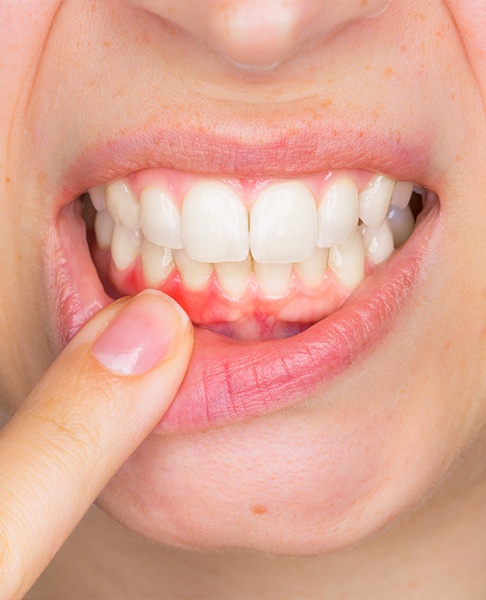PERIODONTICS
Periodontics is a specialist dentistry field for those with severe periodontal (or gum) disease.
 WHAT IS PERIODONTICS?
WHAT IS PERIODONTICS?
A periodontist can assist with treating gum disease by specialising in preventing, diagnosing, and treating advanced periodontal disease. Periodontists provide a range of surgical and non-surgical procedures.
These include;
- Placement and maintenance of dental implants
- Scaling and root planning (for periodontal disease)
- Soft tissue grafts
- Pocket elimination surgery
- Regenerative periodontal treatment
- Socket preservation
- Sinus augmentation
- Peri-implant disease treatment
NEED TO KNOW
APPOINTMENTS
- At least two appointments
- During the first visit, a periodontist will evaluate your gum (gingival) condition and measure the degree of any breakdown or pocketing between the gum and the tooth
- The treatment will commence at your next visit.
- You may need additional appointments with a periodontist if the treatment is more complex or to assess the success of the treatment. It is important to remember that periodontal disease requires lifelong maintenance and our dentists and specialist periodontists are here to assist you.
HOW LONG DOES IT TAKE?
- The first appointment will usually last for around 30 minutes
- Treatment appointments will usually be at least 1 hour; however, they will vary depending on the treatment you need
YOU MAY BE ASKED ABOUT
- Your dental and medical history
- Your oral health care routine at home
- If you’re a smoker
BEFORE YOUR APPOINTMENT
No special preparation is needed; however, we advise you to maintain a regular oral health routine at home.
AFTER YOUR APPOINTMENT
- If you have had a local anaesthetic, you will still feel a bit numb for the next couple of hours
- You should avoid eating very hot or very cold foods – a soft food diet is usually recommended after treatment
- Follow the care routine prescribed to you by your periodontist
- Avoid drinking alcohol for at least a couple of days
- Avoid smoking for at least a week following treatment or surgery
- You may have some swelling or sensitivity for a couple of days
- Be gentle brushing your teeth around the treatment area for the first few days
QUICK TIP
Talk to your dentist or specialist to advise you about daily preventative dental care, such as teeth brushing techniques and how often you should floss.
WHAT’S NEXT?
Learn more about some possible treatment options with your local Dental practice. We recommend you book an appointment with a dentist to further discuss, so they can provide expert advice on getting your mouth on track.
